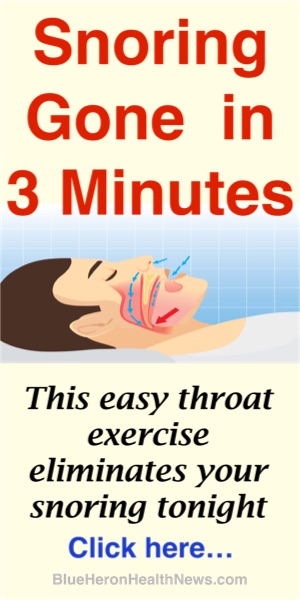Insomnia can be caused by psychiatric and medical conditions, unhealthy sleep habits, specific substances, and/or certain biological factors.
Medical Causes of Insomnia
There are many medical conditions (some mild and others more serious) that can lead to insomnia. In some cases, a medical condition itself causes insomnia, while in other cases, symptoms of the condition cause discomfort that can make it difficult for a person to sleep.
Examples of medical conditions that can cause insomnia are:
- Nasal/sinus allergies
- Gastrointestinal problems such as reflux
- Endocrine problems such as hyperthyroidism
- Arthritis
- Asthma
- Neurological conditions such as Parkinson's disease
- Chronic pain
- Low back pain
Medications such as those taken for the common cold and nasal allergies, high blood pressure, heart disease, thyroid disease, birth control, asthma, and depression can also cause insomnia.
In addition, insomnia may be a symptom of underlying sleep disorders. For example, restless legs syndrome—a neurological condition in which a person has an uncomfortable sensation of needing to move his or her legs—can lead to insomnia. Patients with restless legs syndrome typically experience worse symptoms in the later part of the day, during periods of inactivity, and in the transition from wake to sleep, which means that falling asleep and staying asleep can be difficult. An estimated 10 percent of the population has restless legs syndrome.
Sleep apnea is another sleep disorder linked to insomnia. With sleep apnea, a person's airway becomes partially or completely obstructed during sleep, leading to pauses in breathing and a drop in oxygen levels. This causes a person to wake up briefly but repeatedly throughout the night. People with sleep apnea sometimes report experiencing insomnia.
In some cases, there are simple steps that can be taken to improve sleep (such as avoiding bright lighting while winding down and trying to limit possible distractions, such as a TV, computer, or pets). While in other cases, it's important to talk to your doctor to figure out a course of action. You should not simply accept poor sleep as a way of life—talk to your doctor or a sleep specialist for help.
Insomnia & Depression
Insomnia can be caused by psychiatric conditions such as depression. Psychological struggles can make it hard to sleep, insomnia itself can bring on changes in mood, and shifts in hormones and physiology can lead to both psychiatric issues and insomnia at the same time.
Insomnia & Anxiety
Most adults have had some trouble sleeping because they feel worried or nervous, but for some it's a pattern that interferes with sleep on a regular basis. Anxiety symptoms that can lead to insomnia include:
- Tension
- Getting caught up in thoughts about past events
- Excessive worrying about future events
- Feeling overwhelmed by responsibilities
- A general feeling of being revved up or overstimulated
It's not hard to see why these symptoms of general anxiety can make it difficult to sleep. Anxiety may be associated with onset insomnia (trouble falling asleep), or maintenance insomnia (waking up during the night and not being able to return to sleep). In either case, the quiet and inactivity of night often brings on stressful thoughts or even fears that keep a person awake.
Insomnia & Lifestyle
Insomnia can be triggered or perpetuated by your behaviors and sleep patterns. Unhealthy lifestyles and sleep habits can create insomnia on their own (without any underlying psychiatric or medical problem), or they can make insomnia caused by another problem worse.
Examples of how specific lifestyles and sleep habits can lead to insomnia are:
- You work at home in the evenings. This can make it hard to unwind, and it can also make you feel preoccupied when it comes time to sleep. The light from your computer could also make your brain more alert.
- You take naps (even if they are short) in the afternoon. Short naps can be helpful for some people, but for others they make it difficult to fall asleep at night.
- You sometimes sleep in later to make up for lost sleep. This can confuse your body's clock and make it difficult to fall asleep again the following night.
- You are a shift worker (meaning that you work irregular hours). Non-traditional hours can confuse your body's clock, especially if you are trying to sleep during the day, or if your schedule changes periodically.
If lifestyle and unhealthy sleep habits are the cause of insomnia, there are cognitive behavioral techniques and sleep hygiene tips that can help. If you have tried to change your sleep behaviors and it hasn't worked, it's important to take this seriously and talk to your doctor.
How Much Sleep Do You Need?
Insomnia & Food
Certain substances and activities, including eating patterns, can contribute to insomnia.- Alcohol is a sedative. It can make you fall asleep initially, but may disrupt your sleep later in the night.
- Caffeine is a stimulant. Most people understand the alerting power of caffeine and use it in the morning to help them start the day and feel productive. Caffeine in moderation is fine for most people, but excessive caffeine can cause insomnia.
- Nicotine is also a stimulant and can cause insomnia. Smoking cigarettes or tobacco products close to bedtime can make it hard to fall asleep and to sleep well through the night. Smoking is damaging to your health. If you smoke, you should stop.
- Heavy meals close to bedtime can disrupt your sleep. The best practice is to eat lightly before bedtime. When you eat too much in the evening, it can cause discomfort and make it hard for your body to settle and relax. Spicy foods can also cause heartburn and interfere with your sleep.
Insomnia & The Brain
In some cases, insomnia may be caused by certain neurotransmitters in the brain that are known to be involved with sleep and wakefulness.
There are many possible chemical interactions in the brain that could interfere with sleep and may explain why some people are biologically prone to insomnia and seem to struggle with sleep for many years without any identifiable cause—even when they follow healthy sleep advice.














0 nhận xét:
Đăng nhận xét